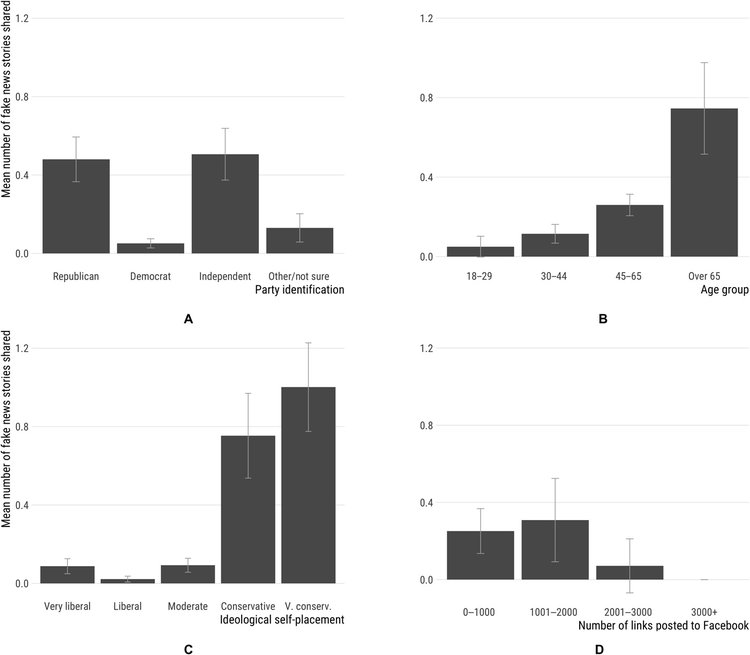Those Who Share Fake News Tend to Be Older: Study

There have been numerous studies and analysis conducted on the 2016 US presidential election and the influence fake news and misinformation had on the eventual outcome. The rise of misinformation has seen it creep into popular culture with television shows like Homeland running fake news storylines modeled on Infowars founder Alex Jones and investigations into Russian troll factories regularly gracing our newscasts. However, two recent studies published last month have found that the sharing of fake news sources were extremely concentrated and rare and that in fact, the vast majority of people did not read, engage with or share fake news. An interesting outcome was that those who did share fake news tended to be older, white and were more conservative in their political beliefs. The two studies examined fake news on separate social media platforms; Facebook and Twitter, with both concluding that sharing this content was a rare occurrence but when users did share fake news articles they tended to be older Americans over 65.

The first study conducted by researchers (Grinberg et al) at Northeastern, Harvard and University of Buffalo and published in Science examined “exposure to and sharing of fake news by registered voters on Twitter“ and found that engagement with fake news sources was extremely concentrated. “Only 1% of individuals accounted for 80% of fake news source exposures, and 0.1% accounted for nearly 80% of fake news sources shared”. The research overwhelmingly indicated that those most likely to share fake news stories were older, conservative and very much engaged with politics.
Also published last month in Science Advances was a study entitled “Prevalence and predictors of fake news dissemination on Facebook” by Guess et al which found that the sharing of fake news sources was a rare occurrence in itself but interestingly, those that did partake in sharing these sources were over 65 and this group shared “nearly seven times as many articles from fake news domains as the youngest age group”.

Average number of fake news shares (and 95% CIs) using the list of domains derived from (7). (A) Party identification, (B) age group, (C) ideological self-placement, and (D) overall number of Facebook wall posts. Proportions adjusted to account for sample-matching weights derived from the third wave of the SMaPP YouGov panel survey.
Guess et al used “behavioral data on Facebook activity linked to individual level survey data” to conduct their research. The authors advocate a cross-discipline approach within the social sciences to further explore the main findings of the study and both Guess et al and Grinberg et al, allude to a lack of digital media literacy in older generations perhaps being a prevailing factor in their sharing of fake news and misinformation.
““Despite widespread interest in the fake news phenomenon, we know very little about who actually shares fake news,” says Joshua Tucker, a professor of politics at NYU and co-director of the SMaPP Lab. “This study takes a first step towards answering this question.
https://www.sciencedaily.com/releases/2019/01/190109142618.htm
“These findings pose a challenge and an opportunity for social scientists”. Guess et al goes on to state that “given the general lack of attention paid to the oldest generations in the study of political behavior thus far, more research is needed to better understand and contextualize the interaction of age and online political content”.
Digital media literacy has long been explored in other social science fields such as sociology and a combined effort across the social sciences would be beneficial to further explore the low levels of digital literacy among the baby boomer generation.
Guess et al also highlights the limited availability of such valuable data to academics, as seen in this study with a combined dataset made up from survey responses and digital trace data. It’s interesting to note that although the researchers had a high response rate, “half of our respondents with Facebook accounts opted not to share their profile data”, an issue commonly found across computational social science—access to data.
Researchers in both studies recognize the need for further exploration into the digital behavior of the older cohort to see if their findings hold true. Social media platforms themselves can do also do more to stop the tide and dissemination of misinformation.





















































































